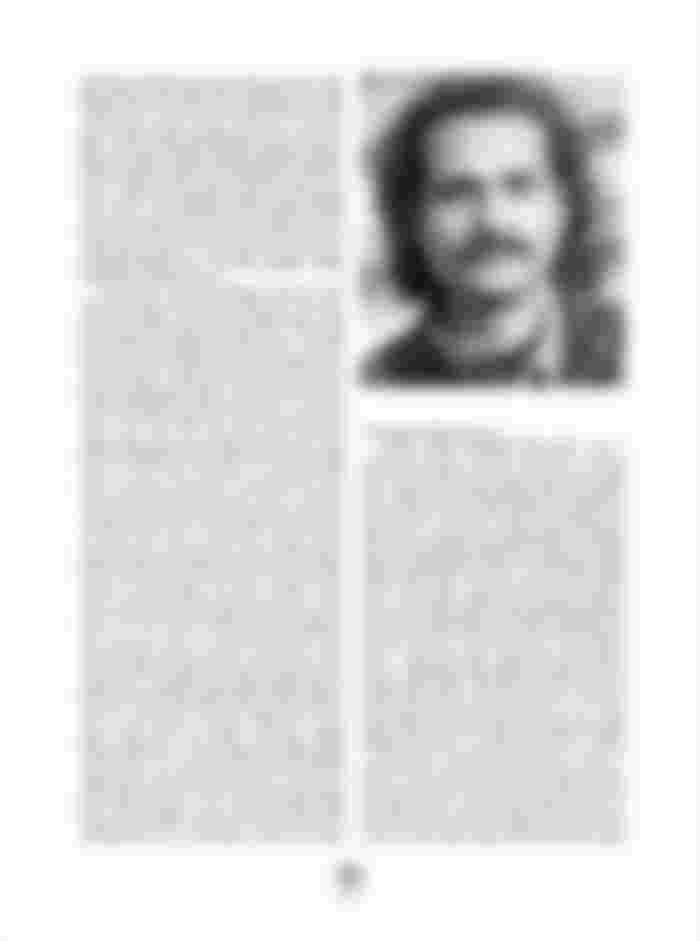Hi friends. I am afrin. I am a new member. How are you? I am fine.
Please subscribe, like comment..
Remember: Sanjeev Chowdhury: He was Bob Dylan of Bengal
Syed Asaduzzaman Suhan
Some people come to the earth with the dream of building a beautiful world. They are constantly struggling to change the rotten society. Unselfishly carrying the message of liberation and humanity by ferry to the desert. Stands strong against injustice and injustice. One of them is the legendary musician Sanjeev Chowdhury, the founder of the popular band 'Dalchhut' in Bangladesh. He was a renowned singer, lyricist, composer, playwright, journalist and poet. Apart from this, he has left a signature of multi-faceted, more versatile talent. One of his qualities is that he was a man of revolutionary and human values. He never bowed his head to injustice, but raised his head and raised his chest in protest. No matter how serious he looked, he was a very funny man with a good sense of humor. He was so funny that he did not hesitate to joke with people close to him about his own death. Even though he understood certain death, he was not disturbed by the death. In fact, those who are truly revolutionaries are seen to be of such a nature. They know that revolutionaries never die. Revolutionaries return to Earth with repeated births like the phoenix. He may have said from that belief, "I will never be in TSC premises or Aziz supermarket, can you ever imagine that! Go and see, I am sitting there chatting. I will go back in the form of Jibanananda Das's poem 'I will come back again', again." I will come back, at the corner of TSC, maybe in the guise of a revolutionary. " After the death of Sanjeev Chowdhury, the square in front of TSC of Dhaka University was named 'Sanjeev Chattar' in his honor. Although he was a legendary musician but his meditation was a revolution in knowledge. So he used the song as a tool of protest. He became actively involved in student union politics and was involved with student unions till the last day of his life. He played an active role in the anti-authoritarian movement of the nineties. Defendants used to hang harmoniums around their necks and sing songs in the procession to keep the movement alive. Standing in front of the barrel of the gun, he did not hesitate to sing a protest song in a strong voice. His style of protest greatly inspires the younger generation. That is why Sanjeev Chowdhury is also called as the voice of the generation.

Sanjeev Chowdhury was born on 25 December 1984 in Baniachang, Habiganj to an aristocratic Hindu zamindar family. His father's name is Gopal Chowdhury and mother's name is Prabhasini Chowdhury. He was the seventh of his parents' nine children. However, their main home is in Dashghar village of Bishwanath police station in Sylhet district. Sarat Roy Chowdhury, the zamindar there, was his grandfather. He was very talented in his student life. As a child he studied in Habiganj Government High School till class VIII and then in Bakshi Bazar Nabakumar Institute in Dhaka he was admitted in class IX. From here he got 12th place in the merit list in the secondary examination in 1986. In 1960, he participated in the Higher Secondary Examination from Dhaka College but got a place in the merit list. He then enrolled in the Department of Mathematics at Dhaka University but did not finish it for various reasons and completed his undergraduate and postgraduate studies in Mass Communication and Journalism. Due to his study in journalism, he took up journalism as a profession. After completing his undergraduate and postgraduate studies, he became involved in journalism professionally in the early eighties. He first started working on the daily passage. Later, Sanjeev Chowdhury also worked in daily newspapers like 'Bhorer Kagaz', 'Ajaker Kagaz', 'Yay Yay Din' etc. Sanjeev Chowdhury played a very important role in launching the feature section in the daily newspapers. Before the nineties, all newspapers were filled with only news and news. While working on Bhorer Kagoj, Sanjeev Chowdhury started writing features for the first time. With this move, the newspaper cuts increased dramatically. In 1983, at the Ekushey Book Fair, he edited and published a little magazine called 'Mainak'. In 1995, he formed a band called Dalchhut with musician Bappa Majumder. The band gained a lot of popularity in a short period of time by working with some songs outside the conventional genre. Dalchhut's first album 'Ah' was released in 1998. Later, a few more albums titled 'Hridaypur', 'Swapnabaji', 'Akashchuri', 'Jyochana Bihar', 'Tukro Kotha', 'Aay Amantran' were released. Among them 'Swapnabaji' was Sanjeev Chowdhury's solo album. The album 'Tukro Kotha' released in 2006 was released in honor of Sanjeev after his death. It contained a collection of poems written by him. In addition, 'Invitation' is the band's sixth and latest album. The album was released on December 25, 2010 on the occasion of Sanjeev Chowdhury's 46th birthday. The latest song of this album titled 'Natjanu' is written by Sanjeev Chowdhury himself.

He was a fan of music since childhood. He was familiar with both Eastern and Western music. His favorite singers were Bob Dylan, Pink Floyd, Al Stuart and others. Their songs impressed Sanjeev Chowdhury a lot. Apart from music, Sanjeev Chowdhury's poetic talent also often came to the fore. He used to write poems himself and was also quite comfortable in recitation. He wrote not only poems but also several short stories. His short story book 'Rush Print' was selected as the best story book by Bangla Academy in the eighties. Ahmed Shafao praised Sanjeev Chowdhury's writing. Sanjeev Chowdhury also wrote the script of the play. In this case, it is as if he was a sabyasachii. The experience of acting through the play 'Sukher Lagiya' is also credited to his achievements. In a song from the poem of poet Farhad Mazhar, Sanjeev Chowdhury's voice has given us a failed deep love song, 'In this ruined city, any nameless bully'. Sanjeev Chowdhury has also sung in the poems of Token Tagore, Sajjad Sharif, Zafar Ahmed Rashed and Kamruzzaman Kamur. This poet-loving singer knew how to turn favorite poems into favorite songs. Most of his songs were composed from his own poems. A total of 45 poems were published at the 2010 Ekushey Book Fair. He had a different interest in Bangladeshi folk music, Sufism and Sufi songs. He looked at the place of their music with great respect. He thought that he would have to work harder to reach that level of pursuit. Sanjeev's very favorite song was Hasan Raja, a mystic singer from Sylhet. Sanjiv sang Baul Shah Abdul Karim's song 'Gari Chale Na' with his permission. Originally, after he sang this song, this song of Shah Abdul Karim became popular overnight. One of the popular songs sung by Sanjeev Chowdhury is 'Chokh', 'Ami Tomakei Bale Dibo', 'Chol Bubaijan', 'Amake Andh Kare', 'Ami Ghuriya Ghuriya', 'Rinka Ken Aste Chale Na', ',' Hand in hand ',' I want to get back ',' Bioscope 'etc.
Sanjeev Chowdhury's political sense was very deep. He got involved in politics while still in school and this attachment became stronger when he came to university. While at university, he was involved in student union politics and was elected its cultural secretary. Under his leadership he also built a strong cultural organization. This smiling man had depth of thought. There was a tendency to build a cordial relationship with everyone. He could easily blend in with any human being. He would be the centerpiece of any chat. As a student he became well known in the political arena for his intelligent and rational discourse. In the anti-authoritarian movement of the nineties, the highway has been touched many times by the poems and speeches of his voice. After writing an instant song, he would immediately put the melody in it and shake the highway, singing the song of the fall of dictatorship. His political awareness and the majesty of his voice seemed to speak in the language of the movement in a coordinated tone. Fatigue did not stop him that day, fatigue could not stop him. Sanjeev Chowdhury, a young student singer, has risen to the occasion. He has done a lot of work for the sake of his profession and for the sake of drugs, but he has never compromised with his own political ideology. He believed in communism, one day communism would be established in this society, this hope was in his mind. He did not hesitate to stand up against all the existing imperialism, communalism and colonialism as the cause of the suffering of humanity. In this class-conscious society, Sanjeev Chowdhury was a man who could de-classify himself in an instant. He could talk to all classes of people, mix with them. Although he was the son of a zamindar dynasty, he never forgot to show compassion for the upper class.
Sanjeev Chowdhury's ancestral home is near PTI Road in Habiganj district town. He used to visit Habiganj from time to time. When I was a high school student, I met Sanjeev Chowdhury through Pradeep Dada, the vocalist of Preenan Band. After entering college, a lot of friendship developed with him. At that time he was at the peak of his popularity all over the country. However, when he came to his district town, he used to move around like a normal person. He used to stand on the side of the road and chat. When he saw an acquaintance, he would wave his hand and exchange greetings. Occasionally in the evenings he would sit on the verandah of Habiganj High School, chat and sing. At that time it did not seem that he was a famous musician of that country. He would easily take everyone as his own. He has personally inspired me in many ways, given me courage. When I went to Dhaka, I would go to Aziz Super Market with my friends from Habiganj in the evening to meet Sanjeev Chowdhury. When he introduced himself to everyone who talked to him, he used to say, 'These are my younger brothers from Habiganj. An aquatic genius'. I can still hear his voice near my ears. That sweet smile still floated in front of my eyes. I spent very little time with him, that was a matter of great fortune for me. I can only say that I saw him up close, how generous he was. The short-lived man died at midnight on November 18, 2006, at the age of 43 from a brain hemorrhage. An era has passed without Sanjeev Chowdhury, yet it seems that he is among us soaked in our love. He will live forever with his fans as Bob Dylan of Bengal or dear Sanjeev Da..
Please share your opinion.. Thanks for reading.

